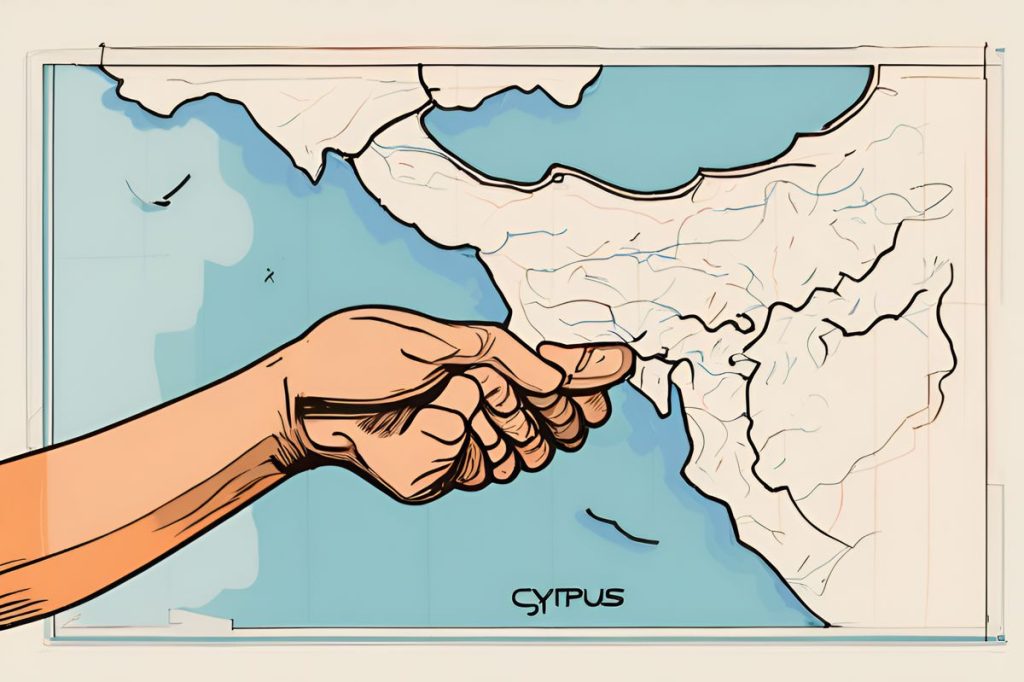The UN, under Secretary-General Antonio Guterres, is striving to unite Greek Cypriot and Turkish Cypriot representatives to tackle the long-standing division of Cyprus. With hopeful discussions ahead, particularly with Turkish President Recep Tayyip Erdogan, there is a glimmer of optimism for a peaceful resolution and a bright future for the island.
What is the UN’s current approach to resolving the Cyprus problem?
The UN, led by Secretary-General Antonio Guterres, is actively working to convene a meeting with Greek Cypriot and Turkish Cypriot representatives. This effort demonstrates a strong commitment to dialogue and a peaceful resolution to the division of Cyprus. The success of the upcoming meeting may hinge on discussions with Turkish President Erdogan, signaling potential progress toward unification.
Commitment to Dialogue
In an effort to resolve the longstanding Cyprus problem, UN Secretary-General Antonio Guterres remains resolute in his commitment to convene a joint meeting between representatives from the Greek Cypriot and Turkish Cypriot communities. This intent was reaffirmed during a productive encounter with President Nikos Christodoulides at the UN headquarters. The meeting, which exuded a spirit of cooperation, is a beacon of hope for those seeking a peaceful resolution to the division of the island.
The scheduling intricacies of this crucial gathering hinge on the outcomes of Guterres’ forthcoming discussion with Turkish President Recep Tayyip Erdogan. Observers note that the Turkish administration’s approach is pivotal. Despite previous delays attributed to the Turkish side, there is an air of anticipation that progress will ensue in the near future.
A Testament to Willingness
The meeting saw Guterres recognize the Greek Cypriot party’s eagerness to re-embark on negotiations. President Christodoulides has been vocal about his commitment to picking up the talks from where they were suspended, showcasing readiness to convene as soon as the UN deems fit. This positive stance is further exemplified through several initiatives aimed at fostering a conducive atmosphere for dialogue, including unilateral measures benefiting Turkish Cypriots and the endorsement of European Council conclusions.
The dialogue between Guterres and Christodoulides also ventured beyond the scope of the Cyprus problem. They praised Cyprus’s humanitarian efforts in response to the Gaza crisis, specifically citing the Amalthea initiative and its contribution to establishing a humanitarian sea corridor. In addition, the leaders exchanged views on the Middle East’s volatile landscape and the concerted efforts to avert further escalation in the region.
Regional Engagement and Humanitarian Efforts
President Christodoulides has been actively engaging with regional counterparts, a testament to Cyprus’s commitment to playing a pivotal role in regional stability and peace. His recent discussions with Prime Minister Benjamin Netanyahu of Israel, Lebanese Prime Minister Najib Mikati, and Jordan’s King Abdullah are reflective of this dedication.
Furthermore, Cyprus is preparing the Estia plan, a contingency operation for the organized evacuation of EU citizens and third-country nationals, should the need arise. This plan underscores Cyprus’s position as a bastion of assistance and coordination in the face of regional challenges.
Anticipation for a Constructive Meeting
As the international community watches, the hope for a fruitful meeting that can pave the way to a unified Cyprus lingers. With President Christodoulides’ progressive stance and the UN’s supportive role, the island nation may soon witness a significant leap toward resolving a conflict that has spanned decades. The anticipation for Guterres’ upcoming meeting with President Erdogan is high, as it could very well set the stage for a transformative dialogue, bringing to fruition the aspirations of peace and unity that have eluded Cyprus for too long.
“`markdown
What is the UN’s current approach to resolving the Cyprus problem?
The UN, under the leadership of Secretary-General Antonio Guterres, is actively working to unite Greek Cypriot and Turkish Cypriot representatives through a joint meeting. This initiative highlights a strong commitment to fostering dialogue and seeking a peaceful resolution to the longstanding division of Cyprus. The success of this meeting may depend on discussions with Turkish President Recep Tayyip Erdogan, which could signal potential progress toward unification.
How is the Greek Cypriot leadership responding to the UN’s initiatives?
Greek Cypriot President Nikos Christodoulides has expressed a strong willingness to re-engage in negotiations, showcasing readiness to resume talks from where they were previously suspended. This positive attitude reflects a commitment to fostering a conducive environment for dialogue, underpinned by various initiatives aimed at benefiting Turkish Cypriots. The Greek Cypriot leadership’s eagerness is seen as a hopeful sign for future discussions.
What regional efforts is Cyprus undertaking to promote stability?
President Christodoulides has been actively engaging with regional leaders, including discussions with Israeli Prime Minister Benjamin Netanyahu, Lebanese Prime Minister Najib Mikati, and Jordan’s King Abdullah. These engagements highlight Cyprus’s dedication to regional stability and peace. Additionally, Cyprus is preparing the Estia plan, an organized evacuation operation for EU citizens and third-country nationals, emphasizing its role as a hub of assistance amid regional challenges.
What humanitarian initiatives is Cyprus involved in regarding the Gaza crisis?
Cyprus has undertaken significant humanitarian efforts in response to the Gaza crisis, notably through the Amalthea initiative, which aims to establish a humanitarian sea corridor. This initiative not only underscores Cyprus’s commitment to humanitarian aid but also reflects the island’s active role in addressing broader regional issues. During discussions with UN Secretary-General Guterres, both leaders commended these efforts and explored further collaborations to prevent escalation in the Middle East.
“`

